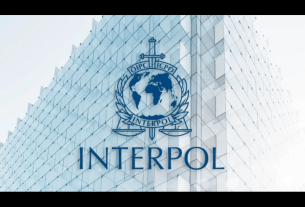The plight of Afghan refugees in Pakistan has grown more dire in recent months as a government crackdown targets undocumented migrants, with many families living in constant fear of harassment, extortion, and deportation. Shaharzad, an Afghan refugee residing in Islamabad, describes her shrinking living space—a small courtyard in a guesthouse—reminiscent of the restrictive environment she endured under Taliban rule in Afghanistan.
This escalating situation comes amidst rising anti-Afghan sentiment in Pakistan, which has been exacerbated by a series of militant attacks, many attributed to the Tehreek-e-Taliban Pakistan (TTP). In response, the Pakistani government initiated a controversial crackdown last summer, evicting approximately 750,000 Afghan refugees, many of whom were living in the country without proper documentation.
Shaharzad, who lives with her children, has experienced firsthand the increasingly hostile environment. She recounts an incident where her son was detained while walking in a park. Instead of being asked for identification documents, the police reportedly demanded money, highlighting the growing pattern of extortion and exploitation faced by Afghan refugees. “The situation for Afghans here is terrible, and the behavior of the Pakistani police is like that of the Taliban,” she said, emphasizing the trauma that continues to affect her family as they navigate life in exile.
Human rights organizations and refugee advocates have expressed concern over the mounting challenges refugees face in Pakistan, where anti-Afghan rhetoric has been amplified in recent months. While the Pakistani government justifies the crackdown by citing security concerns, particularly with regard to cross-border militancy, refugees like Shaharzad fear being caught in the broader political and security turmoil that has plagued the region.
The impact of the crackdown extends beyond harassment and extortion. Refugees, many of whom fled Afghanistan to escape violence and persecution, are now left in a precarious position, facing uncertainty about their future and the possibility of deportation back to a country still grappling with instability. The majority of Afghan refugees in Pakistan are either undocumented or have overstayed their permits, complicating their ability to seek legal protection or employment.
As Pakistan grapples with its own security challenges, the fate of Afghan refugees remains a pressing issue. The government’s response to the refugee crisis has drawn criticism from human rights groups, who warn that the treatment of refugees in Pakistan could have long-lasting social and psychological consequences for those caught in the crossfire.
While the crackdown continues, international calls for a more humane and lawful approach to refugees are growing. Advocates urge both the Pakistani government and the international community to prioritize the protection and rights of Afghan refugees, who find themselves increasingly vulnerable in an already difficult situation.


